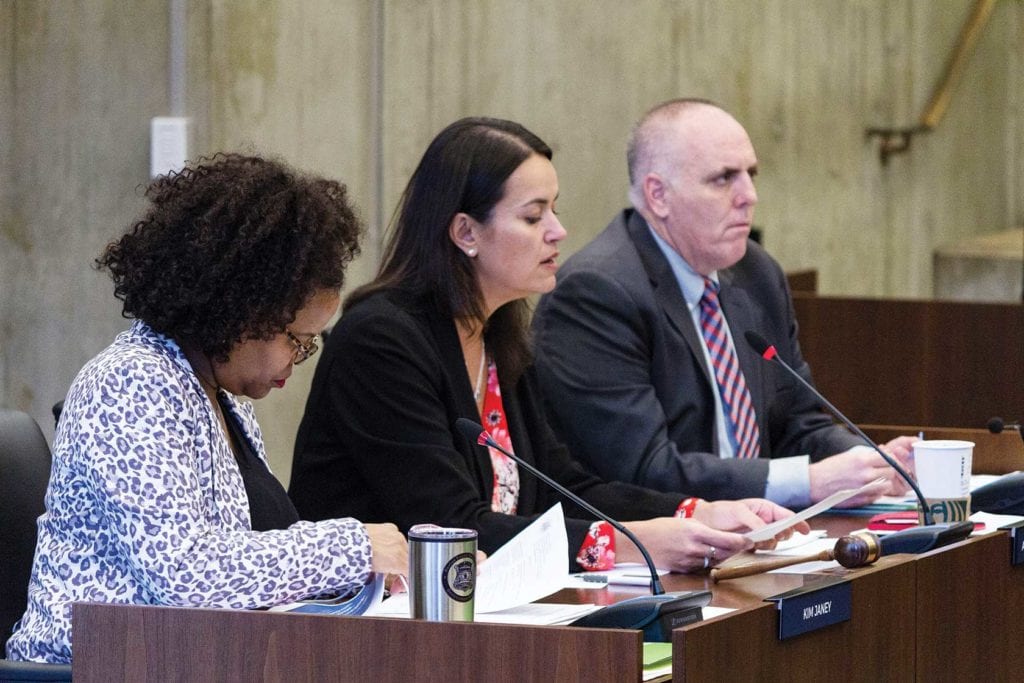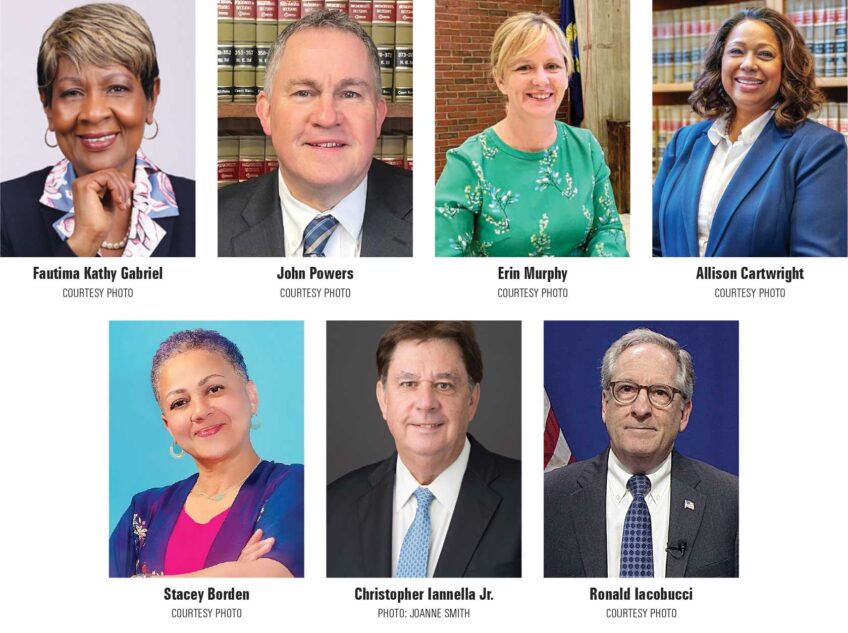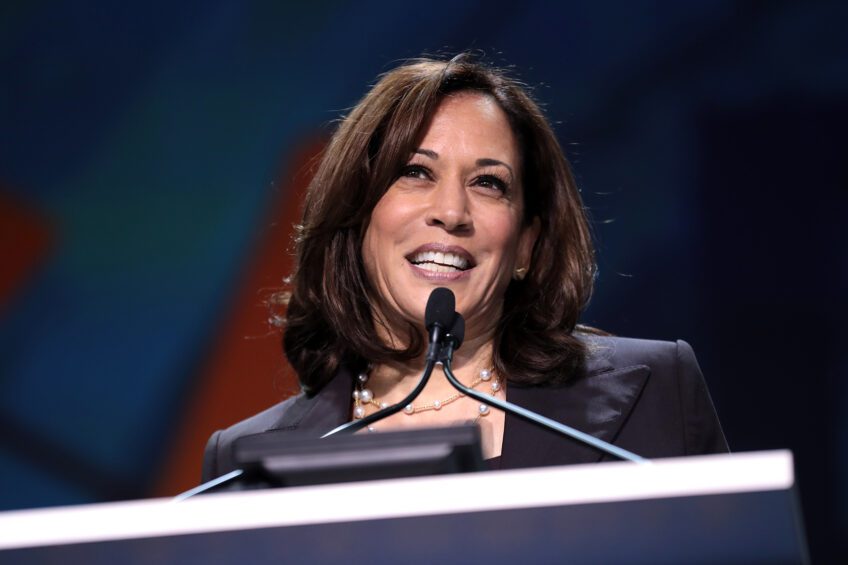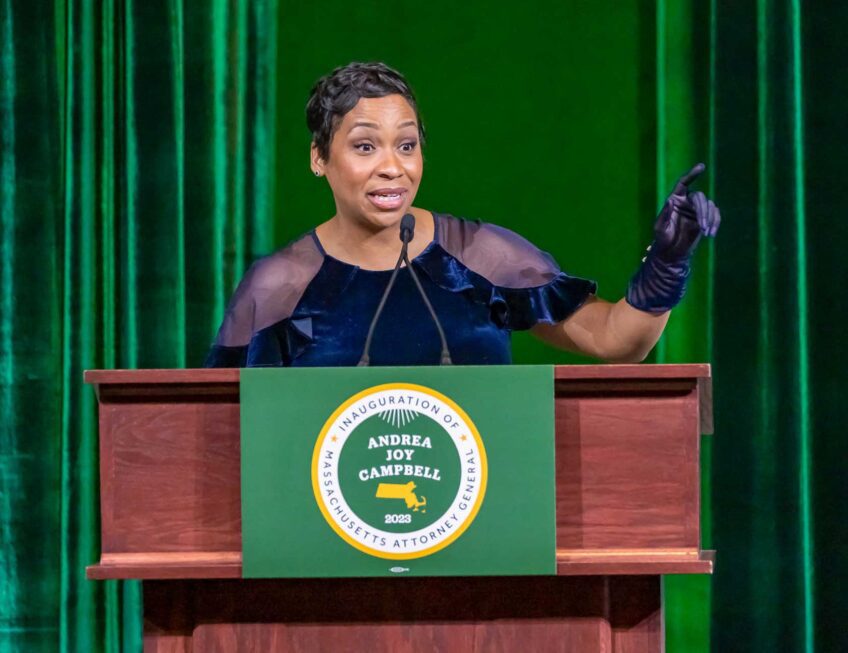
Asian Americans nationwide are facing increased discrimination and hate crimes due to stereotypes and misinformation about the COVID-19 pandemic. Boston City Councilors Michelle Wu and Ed Flynn have offered a resolution in support of a U.S. House of Representatives resolution authored by Rep. Grace Meng [D-NY]. The resolution calls on federal officials to investigate threats against the Asian American community and prosecute perpetrators.
“The fear and anxiety and instances of hate crimes are incredibly alarming,” said Wu in Wednesday’s council meeting. “And most of all, it is frustrating and painful that it is being subtly encouraged by the president of the United States.”
President Trump has deemed COVID-19 the “Chinese virus” or “Wuhan virus.” Wu and Flynn’s resolution noted that this was “irresponsible rhetoric” that “endangers the safety of our AAPI [Asian American/ Pacific Islander] communities.”
An April 23 report from the Asian Pacific Policy and Planning Council tracked hate crimes against Asian Americans and Pacific Islanders. Stop AAPI Hate, the organization’s reporting center, has received over 1,500 reports of coronavirus discrimination from Asian Americans across the country since its launch in March. The reports range from incidents of verbal harassment to physical assault. Others reported being spat on or called racial slurs.
Flynn acknowledged Boston’s uptick in discrimination. Before the city’s stay-at-home orders, he said, there was a sharp decline in business for restaurants in Chinatown.
“This will continue to be an issue for our communities,” said Wu. “Both during the pandemic but even after, as we think about the economic impact and the long-term recovery.”
Wu also called for a hearing on the allocation of COVID-19 relief funds. Last week, the council held a hearing concerning equitable recovery. Discussions during the hearing acknowledged how planning “has not necessarily included every voice or most targeted to the area where need is greatest,” she said.
Wu addressed Boston’s three municipal resiliency funds: the Boston Resiliency Fund, the Rental Assistance Fund and the Small Business Relief Fund.
“We have questions on how those funds have been allocated so far,” she said, as well as “what the processes have been and what the processes will be moving forward for future distributions.”
Councilor Julia Mejia emphasized the importance of language access. She said that some application questions were confusing, and everything came out in English first.
“There was just a lot of discrepancies in terms of how this was rolled out,” she said, which “questions whether or not we have done our due diligence in making sure that we’re serving all.”
Councilor Ricardo Arroyo said that several small business owners have expressed frustration at federal, state and municipal relief. The administration never responded to several requests for application information, said Arroyo, and business owners got “the cold shoulder.”
Concerns have mounted nationally regarding the allocation of U.S. Small Business Administration loans. On April 22, CBS News reported that “flaws in the Paycheck Protection Program are hindering small businesses owned by minorities and by women from securing federal coronavirus relief.” Advocates estimate that 90% of minority- or women-owned businesses have been or will be “shut out” of the program.
Locally, Council President Kim Janey expressed concern for Boston’s struggling cannabis businesses, many of which have closed since the pandemic. The cannabis industry is worth billions of dollars, but Janey said that some communities are still disproportionately impacted by the prohibition of cannabis.
Janey called for two hearings: one to create an equity empowerment zone in the cannabis industry and another to ensure that a past ordinance, which established equitable regulation of the cannabis industry, was implemented.
The hearing orders “will put more focus on creating equitable opportunities and access for wealth creation in communities of color that were disproportionately impacted by the prohibition of cannabis and the war on drugs,” she said.
Supporting an equitable cannabis industry will help revive the economy post-pandemic and close the already existing wealth gap, she added.
“There is no equitable recovery without cannabis,” agreed Councilor Lydia Edwards, later adding, “There is no way we are going to have a true comeback from this city if we allow for this industry to die. And that’s what we’re doing right now, as the city of Boston, we are allowing this industry to die.”
The city’s Cannabis Board hasn’t been meeting, said Edwards, and board members haven’t issued any HCAs (Host Community Agreements), which allow cannabis businesses to operate within the city. Although businesses can’t open during the pandemic, she said, granting HCAs will “keep the hope alive.” She encouraged the administration to start meeting immediately.
Councilor Andrea Campbell said it was “unacceptable” that certain small cannabis owners were told to shut down, with no discussion whatsoever, while liquor stores were allowed to remain open.
Campbell also called for a hearing to discuss youth employment opportunities. Young people need to feel safe and supported, she said, especially since youth programs make a difference in minimizing Boston’s crime.
She said that although Boston’s crime rates have fallen, there’s been an uptick in homicides and shootings. On April 15, for instance, 17-year-old Alissa King was shot and killed in Dorchester. Other gun violence incidents include the injury of a 16-year-old in Jamaica Plain and 10-year-old in Roxbury.
There have been 11 homicides and 44 shootings this year as of April 19, she said, and two homicides and 15 shootings have occurred since Gov. Baker issued a stay-at-home order.
Residents of neighborhoods plagued by gun violence are suffering, Campbell said.
“There are some communities, while they’re dealing with the pandemic, while they’re dealing with the crisis, unemployment, job loss, loss of loved ones, can’t get testing, all of the inequities this council’s been talking about for some time, they’re also dealing with their fair share of violence, unfortunately,” she said.
Mejia also spoke of the importance of addressing youth employment.
“Violent crime rates drop when there are more employment opportunities for young people,” she said, citing studies. She later added, “We need this hearing so we can find new and creative ways to adjust to the new normal we find ourselves in.”






